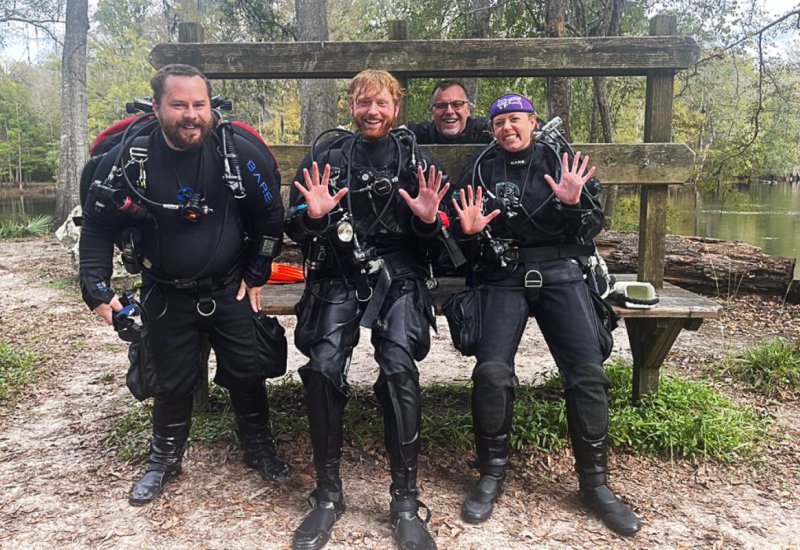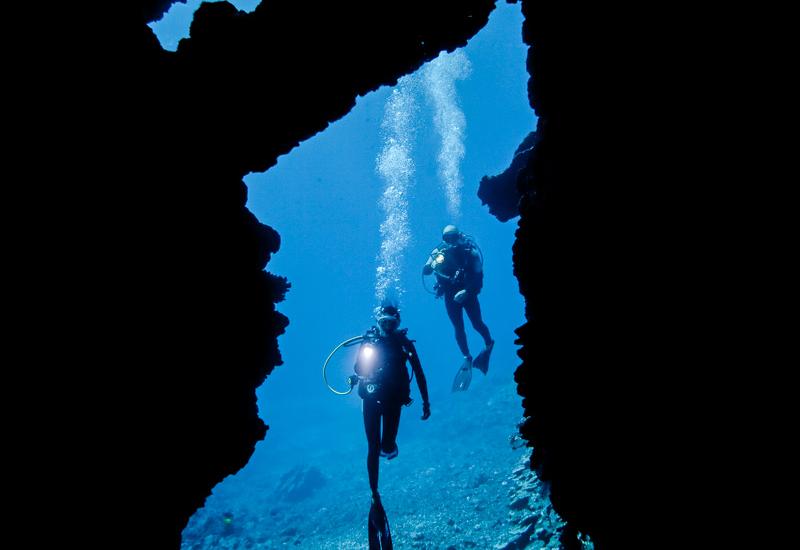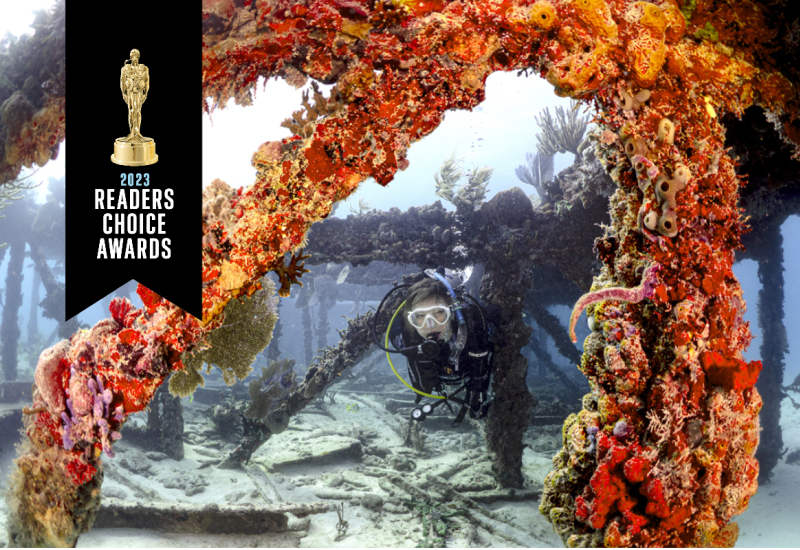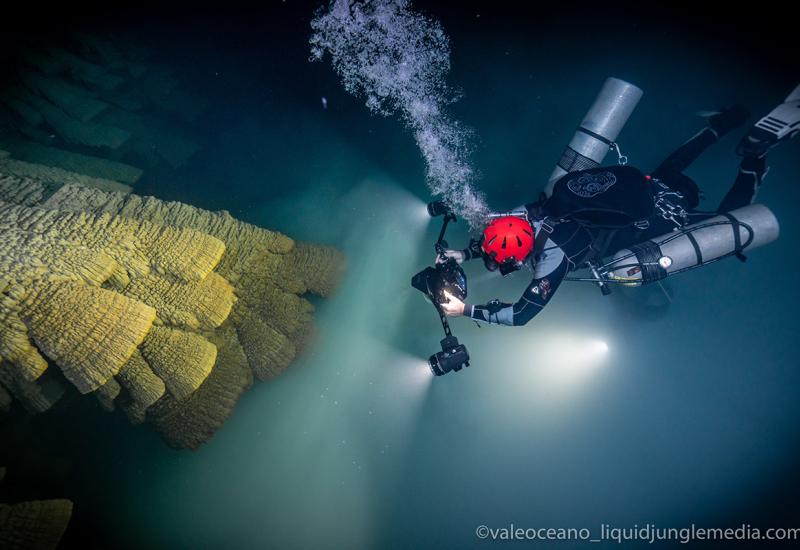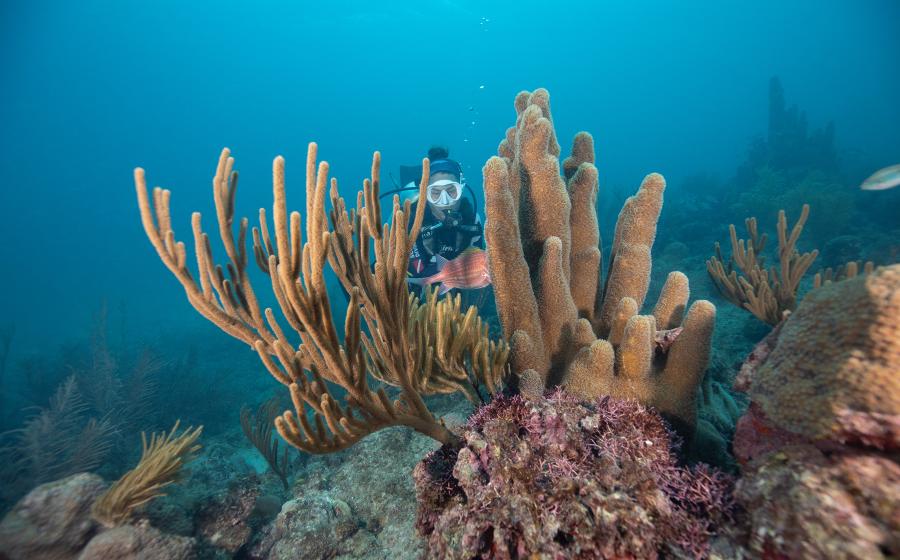What It's Like to Witness an Oxygen Toxicity Emergency
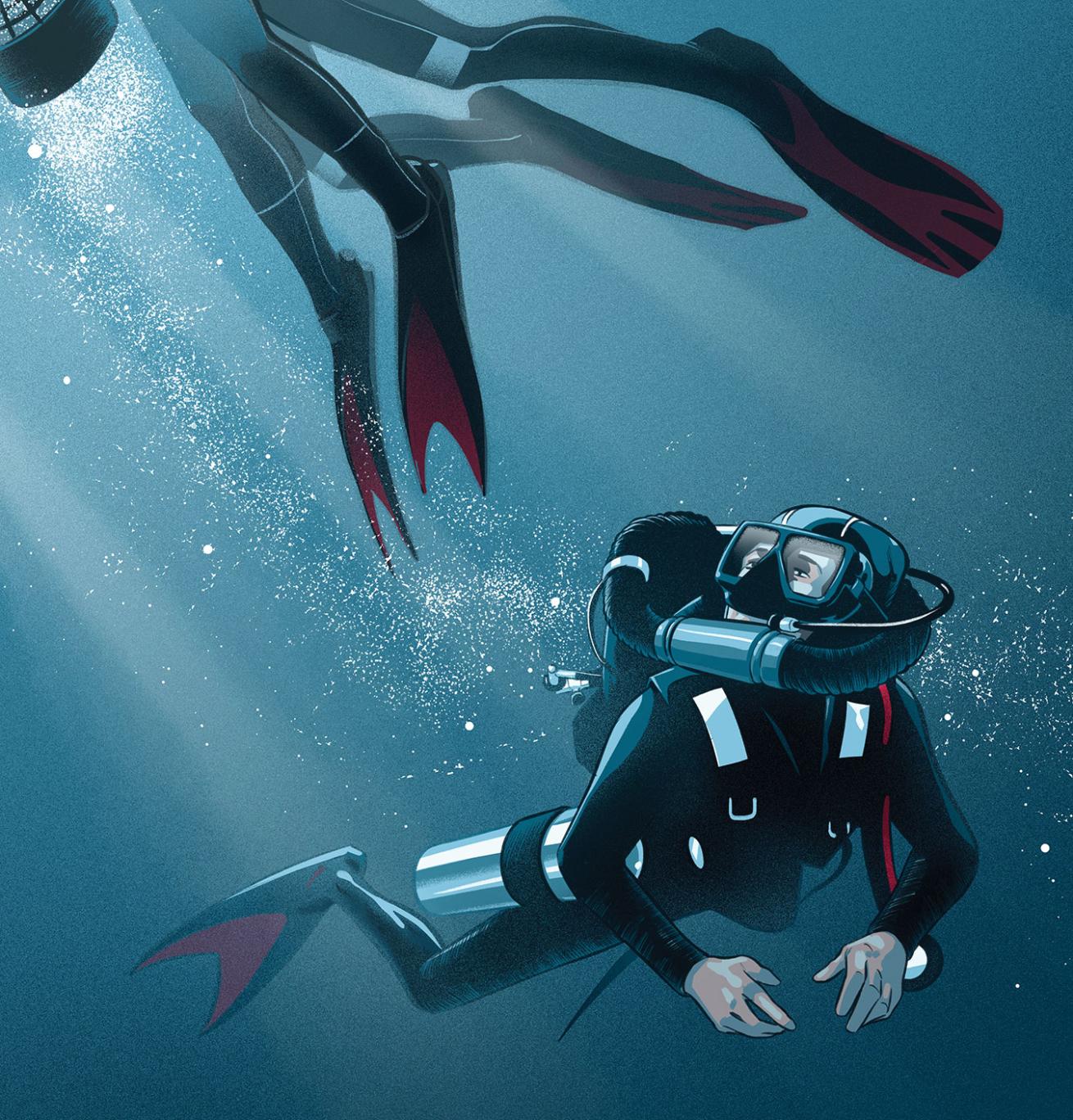
Steven P. HughesA cave-diver instructor is in the right place at the right time.
I was teaching a cave-diver course at Jackson Blue Springs in Marianna, Florida, when a DPV zoomed overhead. Just as it did, I felt a leg kick me.
I thought, Well, that was messed up. Then I quickly realized that this cave is 100 feet deep, and nobody scooters out of here without decompressing. Is that leg attached to a dead diver?
I rounded up the class, and we exited just as I saw the driver of the DPV try to place his unconscious buddy on dry land. By the time we readied to start CPR, an ambulance had arrived, and we loaded him up. I assumed the diver was dead.
Several days later, I got a phone call from the diver who had been unconscious, thanking me for being there to assist. I’m 99.9 percent sure he had oxygen toxicity. He was young and in fantastic health. What caused him to pass out was that the gas mix he was using in his rebreather had too much oxygen. As he descended into the cave, the partial pressure of oxygen spiked on the rebreather. Because he likely had oxygen toxicity rather than some other cause, it appears he survived what would normally kill you—not breathing for 20 to 25 minutes. Experts say that after about 4 minutes without oxygen, your brain starts dying. Typically, chances of surviving this are so low, they’re not even calculable. But in his case, what should have killed him might have saved his life. My theory: Because he was breathing such high levels of oxygen, his brain was saturated with it.
A body that isn’t breathing doesn’t supply enough oxygen to the brain, but he had a surplus, which carried him through.
One of the main signs of oxygen toxicity is that a body will convulse. Every muscle twitches at once. But as soon as that overload of oxygen is taken away, the person will snap out of it. The only residual effect is soreness from having every muscle tighten up at the same time.
The diver doesn’t remember anything about the incident—which is typical—but fortunately, he has not shown any signs of lasting effects either.

